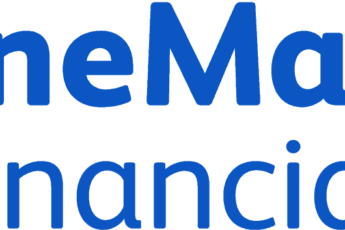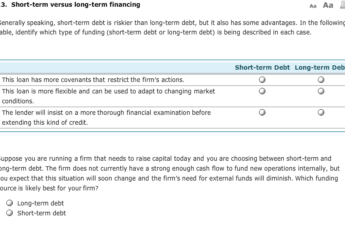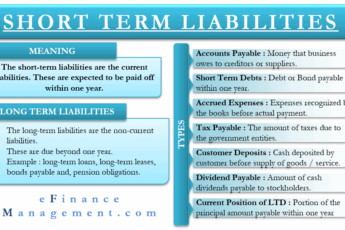In order to be eligible for a short-term loan, you must be employed or receive a paycheck from an employer. This type of loan is called an employee hardship loan. Depending on the circumstances, you may need the loan while you are employed, while you are unemployed, or both. You can set up alternate payment options in case your employment status changes. The goal of a hardship loan is to ensure that the loan is paid back in a timely manner, and the employee does not default on the loan.
Employers
If you’re an employer who is thinking about offering a short-term loan to a salaried employee, you’ll need to follow some guidelines and create a loan agreement. These loans are usually repaid in installments from the employee’s paycheck. The key is to ensure that the employee pays the loan back on time and does not default on it. This means that the loan is not a bad idea, but it should be done cautiously and carefully.
An employee loan is a great option because it allows employees to meet their needs without racking up personal debt. Employee loans can also be used to pay for personal expenses or financial hardships. Employers can set the parameters of the loan program, including the amount and terms of repayment. However, employers should be aware of state wage reduction laws, which may limit the amount of money a salaried employee can borrow.
To get a short-term loan, the applicant must have a salary of at least Rs. 15000 per month. The process of applying for a short-term loan is easy and fast. The process has become digitized, and lenders can give borrowers up to INR 50 lakh at a time. However, it is best to apply early because the interest rates for these types of loans can vary from lender to lender.
While traditional lenders can be a hassle, co-operative banks can offer better rates and flexible repayment options. If you’re a salaried employee, a short-term loan is a smart way to get cash, whether for a new car or home, or for medical bills. The most important thing is that you can use it for personal needs, not just business purposes. Moreover, you can use it to pay off high-cost debt, such as credit cards and medical bills.
As the name suggests, a short-term loan is a type of salary advance, which the employee must repay within a certain time. The terms of repayment are determined by the policy of the company, but it is important to understand that salary advances are not tax-free. Some employers require that the applicant pay back the loan with future paychecks.

Paychecks
Salaried employees can take advantage of payroll advances to meet their immediate needs. The advance is a short-term loan that the employee must repay within a certain time period. The repayment term is determined by the company policy. Many states follow federal law and allow payroll deductions for salary advances. These advances should not include any taxes. In addition, the company should withhold the appropriate taxes from the employee’s paychecks.
A salary loan is a good choice for salaried employees when expenses are unexpected and prevent the budget from keeping up. These loans can help people pay off large amounts, including credit card bills, hospital bills, and vacations. With these loans, many salaried employees can avoid putting their finances at risk by spending the money responsibly.
Salary-based employees can also apply for unsecured personal loans. These loans have lower interest rates and flexible repayment options than long-term loans. Although they may require collateral or guarantors, they can fulfill the immediate need for money. Most of these loans are easy to qualify for and require a minimum credit score.
These loans can be used for any emergency. These types of loans are especially useful for those who need cash in a hurry. They are designed to cover unexpected expenses until the next pay period. However, there are some important factors to consider before applying for salary loans. To make sure you qualify for the best option, check your credit score. You should be able to repay the loan with your next paycheque.
Employers should take a careful look at the terms of payroll loans and how they can help their employees meet their financial needs. While it may seem risky for employers to lend to their employees, this practice can be a valuable solution for employees who need immediate money to meet unexpected expenses.
A paycheck advance is a short-term loan that provides access to an employee’s paycheck ahead of payday. These loans are typically issued to salaried employees and can be a useful tool for easing financial shortages. For example, an employee earning $10 per hour can get a $1,000 advance. These loans are intended to help employees deal with one-time events such as medical bills.
Payday loans
Many salaried employees may be unable to cover all their expenses. A salary advance is a financial tool that can help them get through tough times and make it to their next paycheck. It can be used for a variety of purposes, such as car repairs, medical expenses, or large ticket purchases.

Historically, employees who have run into financial difficulties have borrowed money from payday lenders. However, these loans are often accompanied by unfair terms and high interest rates that set employees back even further. In addition, some payday lenders offer a limited time frame for repayment, which is often inadequate for their needs. A looming repayment deadline can also negatively impact an employee’s personal well-being.
Salary Finance, another company that offers salary loans, is another option for salaried employees. To qualify, you must be employed at a partner company for a year and make at least $10,000 a year. The company does not use third-party credit scores to determine whether an applicant will repay a loan, but it does offer a range of interest rates that range from 5.9% to 19.9%. In addition to offering loans to salaried employees, Salary Finance also provides training for employers and articles that give advice on budgeting and emergency financial management. This service is designed to make credit more accessible to everyone and make it easier for employers to provide employees with the funding they need.
Payday loans for salaried employees can be a lifeline in a time of financial crisis. Approximately 80% of workers live paycheck to paycheck and have little to no savings for emergency situations. Fortunately, many businesses have stepped up to offer payday loans to employees. Some employers have even incorporated payday loan services into their employee benefits package.
However, these loans are often used for basic expenses. Many borrowers struggle to pay their bills each month, and they frequently use payday loans to pay bills such as rent and utility bills. Moreover, the average payday loan requires a $430 payment, which most borrowers cannot afford. Therefore, they often have to re-borrow the loan to cover these costs.
Personal loans
Personal loans for salaried employees are a great way to fund emergencies and big-ticket expenses without liquidating your assets. Since these loans are unsecured, you don’t have to put up collateral, and the interest rate is usually low. This type of loan is best for large, non-risk-related expenses, such as wedding expenses or medical bills.
Salary status is one of the main criteria that lenders use to determine if an applicant is eligible to get a loan. For instance, if the applicant is over 58 years old and has been working for more than five years, the chances of getting a loan are higher. Another factor is job security and length of service with the company.
If you are a salaried employee, personal loans for salaried employees can help you fulfill your goals and dreams. These loans are easy to apply for and offer low interest rates. The repayment schedule can also be flexible. Most people can repay their loan amount over time as long as they meet repayment norms.

The most important thing to consider when applying for a personal loan is your ability to pay it off. Ideally, you should plan your loan repayments around your salary. You should also make sure that you can pay back your EMIs from your disposable income. You can use a personal loan EMI calculator to figure out your monthly repayment obligations. Simply enter your loan amount, interest rate, and tenure to find out how much you can repay.
Personal loans for salaried employees can help you fulfill your dreams and pay for unexpected expenses. Whether you need to pay for an unexpected medical bill or make the next big purchase, a personal loan can help you make it happen. In times of emergency, an instant personal loan for salaried employees can be your best option. These loans also come with flexible repayment options, and a range of other features that make them an excellent choice.
Personal loans for salaried employees are similar to other types of unsecured personal loans. But it is important to remember that these loans often have different requirements and eligibility requirements than other types of loans.











